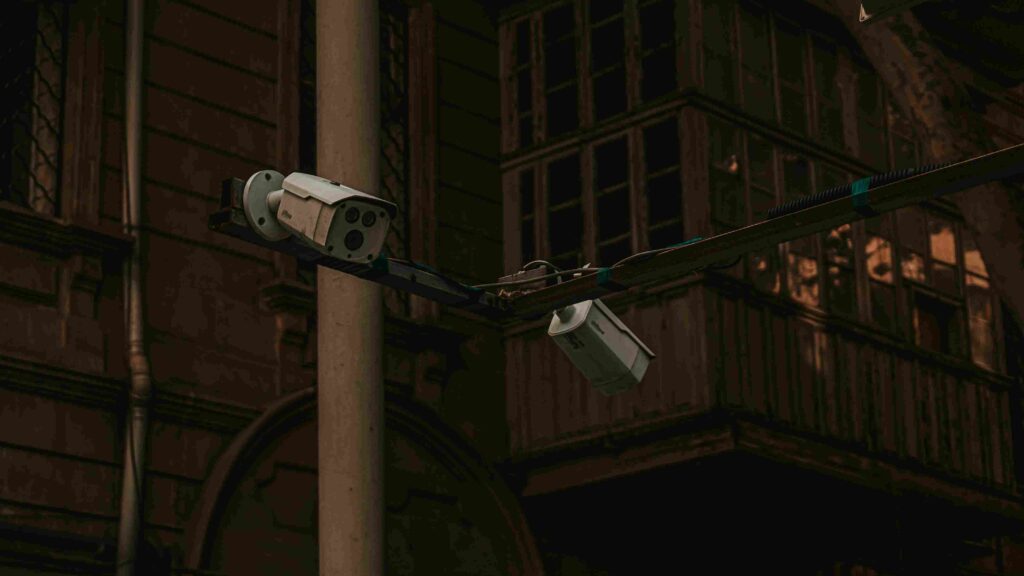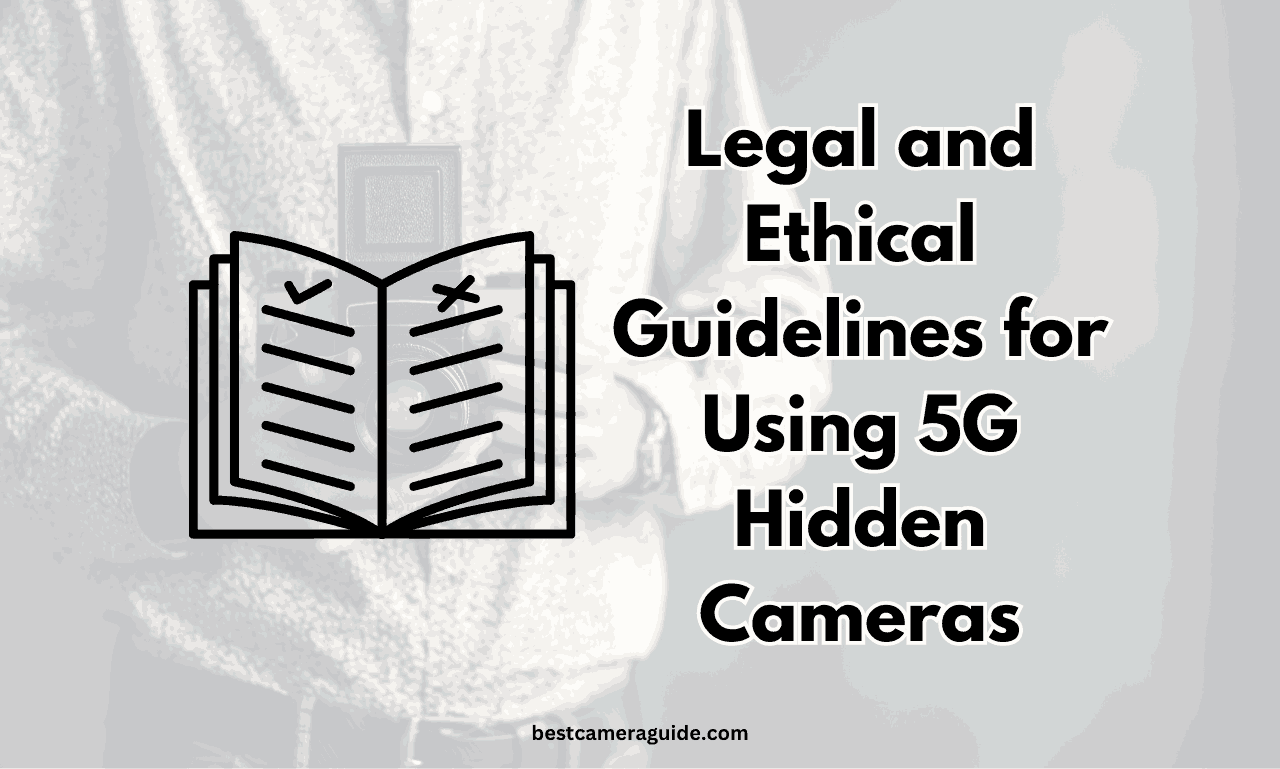With the rise of 5G technology, hidden cameras have become more advanced, offering higher-quality footage and better connectivity. However, as with any surveillance tool, the use of hidden cameras must adhere to legal and ethical guidelines. Understanding these laws and ethics is essential to using these devices responsibly.
This article will walk you through key privacy laws regarding hidden cameras, ethical considerations, and best practices for their responsible use.
Overview of Privacy Laws Regarding Hidden Cameras
| Image | Product | Price |
|
Our Pick
1

|
WIWACAM 4K WiFi Hidden Camera |
|
|
2

|
4K Spy Camera Hidden Camera |

Hidden cameras have a range of uses, from home security to workplace surveillance. However, the legalities surrounding their use vary greatly depending on your location.
In the United States, for example, federal laws allow the use of hidden cameras in public places where there is no reasonable expectation of privacy. However, some states have stricter rules. For instance, in states like California and Florida, it’s illegal to install a hidden camera in private spaces like bedrooms, bathrooms, or hotel rooms.
The key is understanding the distinction between public spaces and private spaces. In public spaces, people have a lower expectation of privacy, meaning hidden cameras are generally allowed. However, in private spaces, people expect their activities to remain confidential, and recording without their consent can be illegal.
Ethical Considerations for Surveillance
Beyond the legalities, it’s essential to consider the ethical implications of using 5G hidden cameras. Just because something is legal doesn’t always mean it’s ethical.
When using a hidden camera, you must consider whether you’re infringing on someone’s privacy. Surveillance can make people feel uncomfortable, even if it’s done for legitimate reasons. Transparency is crucial. While you may not always need to inform someone they’re being recorded, doing so when possible can foster trust and help maintain healthy relationships.
Additionally, hidden cameras should only be used when absolutely necessary. For example, monitoring your home for security purposes is generally considered acceptable, while using a hidden camera to monitor employees in a non-public workspace might cross ethical boundaries.
Guidelines for Responsible Use of 5G Hidden Cameras
To ensure you’re using hidden cameras both legally and ethically, it’s essential to follow a set of best practices. These guidelines will help you stay compliant with privacy laws and respect the rights of others.
- Know the Laws in Your Area
Always research your local privacy laws regarding hidden cameras. In some areas, the use of hidden cameras may be heavily restricted or outright illegal without explicit consent. Ignorance of the law is not a valid excuse, so make sure you’re informed before setting up any devices. - Avoid Recording in Private Spaces
Areas like bathrooms, bedrooms, and dressing rooms are considered private spaces where individuals have a high expectation of privacy. Recording in these areas, even if you own the property, can lead to legal consequences. - Use Cameras for Legitimate Purposes
Hidden cameras should only be used for legitimate reasons, such as monitoring your home for security, protecting your business, or documenting unlawful activities. Using a hidden camera for personal gain or to invade someone’s privacy is both unethical and, in many cases, illegal. - Be Transparent When Possible
While it may not always be legally required to inform people they’re being recorded, it’s a good practice to be transparent whenever possible. Informing employees or guests of the presence of cameras can help maintain trust. - Avoid Audio Recording Without Consent
Recording audio without consent is often illegal, even in public places. Federal law in the U.S. and many state laws require that at least one party involved in the conversation consents to the recording. Always make sure you’re complying with audio surveillance laws. - Store Footage Securely
5G hidden cameras are powerful tools because they can transmit data over secure networks. However, this means that the footage you capture could be vulnerable to hacking or unauthorized access. Always use strong security measures, like encryption, to store and transmit your footage securely. - Review Footage Responsibly
Only review the footage when it’s necessary and relevant. Avoid scanning through footage for personal reasons or entertainment. The purpose of surveillance should always remain professional and lawful. - Limit Camera Use in the Workplace
While it may be legal to use hidden cameras in certain parts of the workplace, it’s crucial to respect your employees’ privacy. Limit camera use to areas where it’s genuinely needed, like cash registers or stockrooms, rather than in personal office spaces or break rooms.
The Role of 5G Technology in Hidden Cameras
The introduction of 5G technology has significantly enhanced the capabilities of hidden cameras. With faster data transmission, real-time monitoring has become more efficient and reliable. Users can access live footage from remote locations with minimal latency. However, the advancements brought by 5G also raise new challenges, particularly concerning data security and privacy concerns.
To protect the privacy of those being recorded and to prevent unauthorized access to footage, it is important to use encryption and secure networks. As 5G continues to evolve, new legal regulations may emerge to address these privacy concerns, so staying informed about changes in the law is essential.
Benefits of Using 5G Hidden Cameras
There are several advantages to using 5G hidden cameras, especially in comparison to older technologies:
- Real-Time Monitoring: 5G cameras allow you to access live feeds from anywhere with a secure internet connection.
- High-Quality Footage: The increased bandwidth provided by 5G ensures that video quality remains high, even during live streaming.
- Improved Connectivity: 5G networks offer more reliable connections, which means fewer interruptions and less downtime for your surveillance systems.
While these benefits are significant, it’s important to use these technologies responsibly and in line with legal guidelines.
Frequently Asked Questions (FAQ)
1. Are hidden cameras legal?
Yes, hidden cameras are legal in many places, but it depends on the location and the situation. Generally, hidden cameras are allowed in public spaces where there is no reasonable expectation of privacy. However, placing them in private areas like bathrooms or bedrooms is illegal.
2. Can I use a hidden camera to record audio?
In many areas, recording audio without consent is illegal. While video-only surveillance may be allowed, you must be careful with audio recording, as it often requires consent from at least one party involved in the conversation.
3. What are the penalties for using hidden cameras illegally?
The penalties vary based on location and the nature of the offense. In some cases, using hidden cameras illegally can lead to fines, lawsuits, or even criminal charges, depending on how the footage was used or shared.
Conclusion
5G hidden cameras offer a powerful solution for monitoring homes and businesses, but their use must be handled with care. By understanding privacy laws, considering the ethical implications, and following best practices, you can use hidden cameras responsibly and legally.
When using 5G hidden cameras, always stay informed about the latest laws and regulations in your area. Avoid recording in private spaces, use cameras for legitimate purposes, and make sure you’re storing and reviewing footage securely.
If you’re ready to enhance your security system, make sure you do so with both legal and ethical guidelines in mind. Taking these steps will help you protect your property and the privacy of others, ensuring your use of hidden cameras is both responsible and effective.
Call to Action:
Are you thinking of installing hidden cameras for security? Make sure you’re fully informed about the laws in your area before taking the next step. Always prioritize ethical use and ensure that your surveillance methods are legal and secure.

